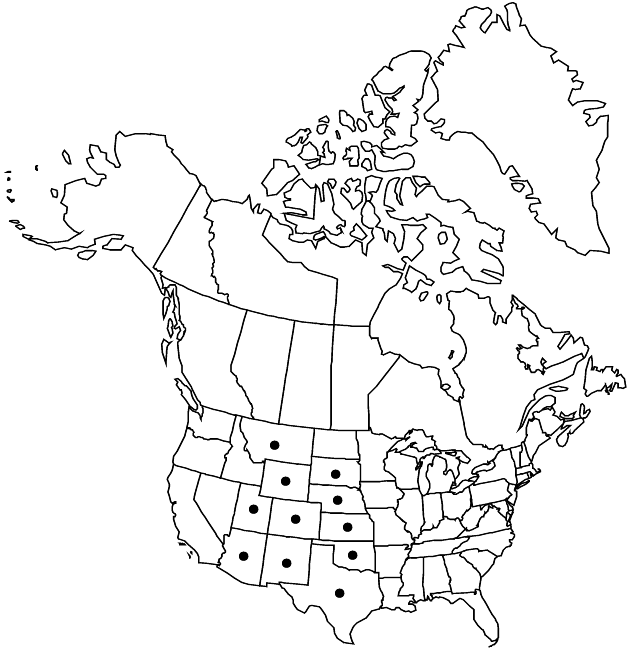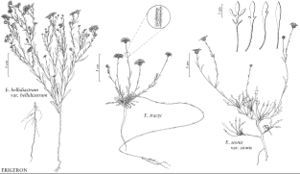Difference between revisions of "Erigeron bellidiastrum var. bellidiastrum"
IllustratedEndemic
Treatment appears in FNA Volume 20. Treatment on page 339.
imported>Volume Importer |
imported>Volume Importer |
||
| Line 48: | Line 48: | ||
|publication year= | |publication year= | ||
|special status=Illustrated;Endemic | |special status=Illustrated;Endemic | ||
| − | |source xml=https:// | + | |source xml=https://bitbucket.org/aafc-mbb/fna-data-curation/src/2e0870ddd59836b60bcf96646a41e87ea5a5943a/coarse_grained_fna_xml/V19-20-21/V20_779.xml |
|tribe=Asteraceae tribe Astereae | |tribe=Asteraceae tribe Astereae | ||
|genus=Erigeron | |genus=Erigeron | ||
Latest revision as of 20:05, 5 November 2020
Stems intricately branched; proximal mostly 1–2(–2.5) mm wide. Leaves: basal and proximal cauline blades linear to linear-oblanceolate, 10–15(–30) × 1–2.5(–3) mm, margins entire or rarely with pair of shallow teeth. 2n = 18, 36.
Phenology: Flowering May–Aug(–Sep).
Habitat: Open habitats in deep, loose sand, areas of desert shrub, sagebrush, juniper, or pinyon-juniper woodlands
Elevation: 1000–1900 m
Distribution

Ariz., Colo., Kans., Mont., Nebr., N.Mex., Okla., S.Dak., Tex., Utah, Wyo.
Discussion
Selected References
None.
Lower Taxa
None.
